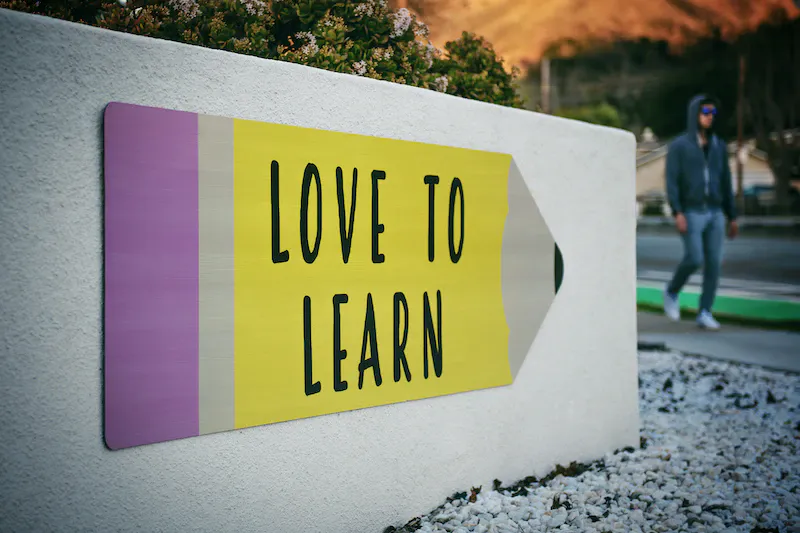Exploring Consent and Communication: A Look at the Intersection of Stories and Real Life

The Importance of Food and Its Impact on Our Lives
Food is an essential part of our lives, and its importance cannot be overstated. Not only is it necessary for our physical well-being, but it also plays a crucial role in our social and cultural lives. Growing up, I remember my parents emphasizing the importance of food and the value of sharing meals with loved ones.
Food is not just about sustenance; it’s about community and connection. It’s a way for us to come together, share stories, and build relationships. Whether it’s a family dinner, a romantic date, or a business lunch, food has the power to bring people together and create lasting memories.
But food is also a resource that needs to be managed carefully. With action, we can accelerate growth, and with food, we can calculate the time taken to grow a crop. However, if we take too much, we risk depleting the resources and damaging the environment. It’s essential to understand the impact of our food choices on the world around us and to make conscious decisions that support sustainability.
As a society, we need to ensure that everyone has access to healthy and nutritious food. Unfortunately, food insecurity remains a significant issue for many people around the world. We must work together to address this issue and ensure that everyone has the opportunity to lead a healthy and fulfilling life.
In conclusion, food is not just a basic necessity; it’s an integral part of our lives. We need to recognize its value and take responsibility for managing this precious resource sustainably. By doing so, we can ensure that future generations will continue to enjoy the benefits of food and the connections it creates.
How Seduction in Media Can Teach Us About Consent
Media plays a significant role in shaping our perceptions of sex and relationships. It can teach us about love, intimacy, and the power dynamics that come into play. However, it can also blur the lines between consent and coercion, especially when it comes to seduction.
Seduction stories are ubiquitous in popular culture. From classic boy-meets-girl tales to more extreme depictions, seduction is often portrayed as a conquest, with one person pursuing the other relentlessly. However, these stories can also be problematic, as they often involve deceit, disguise, degradation, and even violence.
The problem with seduction stories is that they often blur the lines between consent and coercion. While consent should be enthusiastic and freely given, seduction stories often depict situations where the line is blurred. Participants and viewers alike may struggle to distinguish between persuasion and coercion, leading to confusion and misunderstandings.
It’s essential to understand that seduction is not a gray area. Consent is either given or not given, and it’s important to recognize the difference. Unfortunately, many stories in popular culture teach us otherwise, portraying seduction as a conquest where the pursuer overcomes the other person’s resistance.
As a society, we must recognize the harm that these stories can cause and work to change them. We must tell better stories, ones that depict healthy relationships and enthusiastic consent. By doing so, we can help people understand the importance of consent and build a culture of respect and understanding.
In conclusion, seduction stories in popular culture can teach us about consent, but they can also be problematic. We must recognize the harm that these stories can cause and work to change them. By telling better stories, we can help people understand the importance of consent and build healthier, more respectful relationships.
The Blurring of Consent and Coercion in Popular Culture
As a society, we’ve made significant strides in recent years towards understanding the importance of consent. However, popular culture still often blurs the lines between consent and coercion, leading to confusion and misunderstandings.
From movies and television shows to books and music, popular culture is filled with examples of situations where consent is unclear. These stories often depict situations where one person is pursuing the other relentlessly, using coercion or manipulation to get what they want.
Unfortunately, these stories can have a real-world impact. People may model their behavior after what they see in popular culture, leading to situations where consent is not freely given.
The issue is not just that consent is unclear in popular culture, but also that it is often portrayed as something that can be won through persistence or force. These stories teach us that if we push hard enough, we can overcome someone’s resistance, which is not only untrue but also harmful.
It’s essential to recognize the harm that these stories can cause and work to change them. We must tell better stories, ones that depict healthy relationships and enthusiastic consent. By doing so, we can help people understand the importance of consent and build a culture of respect and understanding.
In conclusion, popular culture has a significant influence on our understanding of consent. Unfortunately, many stories in popular culture blur the lines between consent and coercion, leading to confusion and misunderstandings. We must recognize the harm that these stories can cause and work to change them. By telling better stories, we can help people understand the importance of consent and build healthier, more respectful relationships.
Seduction as a Yellow Zone: Proceed with Caution
Seduction has been a part of human behavior since time immemorial, but it can be a tricky and complicated area to navigate. While consensual seduction can be a positive experience, it can easily blur into coercion if not handled with care.
The issue is that seduction often depicts sex as a conquest, with the pursuer relentlessly pursuing the pursued until they give in. This can create a sense of pressure and coercion, where the pursued may feel that they have to give in to the pursuer’s advances, even if they don’t want to.
It’s essential to recognize that seduction is not always consensual and can quickly turn into coercion. It’s crucial to proceed with caution and make sure that all parties involved are comfortable and consenting.
It’s also worth noting that seduction is not a gray area; it’s a yellow zone. This means that while it can be consensual, it can easily cross into coercion, making it important to be aware of the warning signs.
One way to ensure that seduction remains consensual is to prioritize clear communication and enthusiastic consent. This means that both parties should feel comfortable expressing their desires and boundaries and should only engage in activities that they are both excited about.
In conclusion, seduction can be a positive and consensual experience, but it can easily blur into coercion if not handled with care. It’s crucial to proceed with caution, prioritize clear communication and enthusiastic consent, and be aware of the warning signs that seduction may be turning into coercion. By doing so, we can build healthier, more respectful relationships and create a culture of enthusiastic consent.
The Importance of Clear Communication in Sexual Encounters
Sexual encounters should be a mutually enjoyable experience, but often miscommunication can occur. This can lead to misunderstandings and a lack of consent. It is important to establish clear communication with your partner and make sure that both parties are comfortable and consenting to what is happening.
Consent is a continuous process, meaning that it should be established throughout the entire encounter. This means that if someone changes their mind at any point, their partner should respect their wishes and stop. It is important to note that silence or lack of resistance does not equal consent.
The responsibility for obtaining and giving consent lies with both parties. This can be done verbally or through body language, but it is important to make sure that it is clear and understood. If there is any uncertainty, it is better to ask and clarify than to assume.
It is also important to remember that consent can be withdrawn at any time, and this should be respected. It is not only important to respect boundaries during sexual encounters but also to discuss them beforehand. This can help establish clear communication and ensure that both parties are comfortable with what is happening.
In conclusion, clear communication is essential in any sexual encounter. Consent should be established and continuously checked throughout the encounter. It is the responsibility of both parties to communicate clearly and make sure that boundaries are respected. Remember, if there is any uncertainty or discomfort, it is always better to clarify and communicate.
Understanding Sexual Assault and the Importance of Obtaining Consent
Sexual assault is a serious crime that can have devastating and long-lasting effects on survivors. It is important for everyone to understand what sexual assault is and how to obtain consent to prevent it from happening.
Consent is a crucial aspect of any sexual encounter, and it is the responsibility of everyone involved to ensure that all parties have given clear and enthusiastic consent. It is not enough to assume that someone is okay with what is happening or to continue despite their protests or lack of participation.
Consent means that each person involved has freely and enthusiastically agreed to engage in sexual activity. It must be given without coercion, pressure, or fear of repercussions. Consent can be withdrawn at any time, and it must be obtained each time a new sexual act is initiated.
It is important to remember that consent is not just the absence of a “no.” It is an affirmative and enthusiastic “yes.” Silence, hesitation, or the absence of a clear answer does not mean consent has been given. It is also essential to understand that people cannot give consent if they are under the influence of drugs or alcohol or if they are unconscious or asleep.
If someone does not give clear and enthusiastic consent, sexual activity should not occur. If you are unsure if someone has given their consent, it is your responsibility to stop and ask for clarification.
Everyone has the right to make their own choices about their body and what happens to it. By understanding sexual assault and the importance of obtaining consent, we can work towards creating a safer and more respectful world for everyone.
The Power of Storytelling in Teaching About Sex and Consent
Stories have always been a way to teach, to share experiences and to help people understand complex issues. When it comes to sex and consent, storytelling can be a powerful tool to help people understand these topics.
We can all remember a story that has stuck with us over time, one that taught us an important lesson or gave us a new perspective. These stories can be fictional, personal anecdotes or even news articles, but they all have one thing in common: they evoke emotions and help us connect with the topic.
When it comes to sex and consent, storytelling can help break down complex issues and make them more relatable. It can provide context, highlight important nuances and create empathy. It can also help people understand what consent means and how to approach sexual situations in a respectful and consensual way.
However, it’s important to note that not all stories are created equal. Some stories can perpetuate harmful stereotypes or reinforce harmful attitudes towards sex and consent. This is why it’s important to seek out stories that are inclusive, diverse and reflect a range of experiences.
In addition to seeking out these stories, we can also create our own. Sharing personal experiences and reflections can be a powerful way to connect with others and help them understand the importance of consent and respect in sexual situations.
Overall, storytelling can be a valuable tool in teaching about sex and consent. By sharing stories that are inclusive, diverse and reflective of a range of experiences, we can help break down complex issues and create a more empathetic and understanding society.
Transforming Our Narratives to Shift Our Views on Consent
The stories we tell ourselves and the stories we hear from others shape our perspectives on the world. When it comes to the topic of consent, the narratives we consume and perpetuate can have a significant impact on how we think about it.
It’s important to recognize that many of the stories we’re exposed to in media and popular culture often reinforce harmful ideas about consent. Whether it’s the persistent trope of the man who won’t take “no” for an answer or the idea that a woman’s initial rejection is just a form of playing hard to get, these narratives can normalize and even romanticize non-consensual behavior.
But stories can also be a powerful tool for change. By intentionally crafting and sharing stories that center on healthy communication and enthusiastic consent, we can begin to shift cultural norms around sex and relationships.
This doesn’t mean that every story has to be a heavy-handed PSA about consent. Rather, it’s about weaving healthy attitudes and behaviors into narratives in a way that feels authentic and engaging. It’s about creating characters who respect each other’s boundaries and communicate openly and honestly.
Of course, changing our cultural narratives won’t happen overnight. But by actively seeking out and supporting stories that prioritize consent and communication, we can begin to shift the broader narrative around sex and relationships. And ultimately, that can have a profound impact on how we all approach these topics in our own lives.
Conclusion
In conclusion, understanding the importance of consent and healthy communication in sexual encounters is crucial for creating a safe and respectful environment for all individuals. It is essential to recognize the power dynamics at play and to actively work towards creating a culture where consent is sought and given freely. We can learn from stories and media to better understand these concepts, but it is important to also critically analyze them and challenge harmful narratives. As individuals, we can educate ourselves and others, and actively work towards creating a society where consent is the norm. By changing our stories and language, we can shift the cultural narrative and create a more equitable and respectful world.




